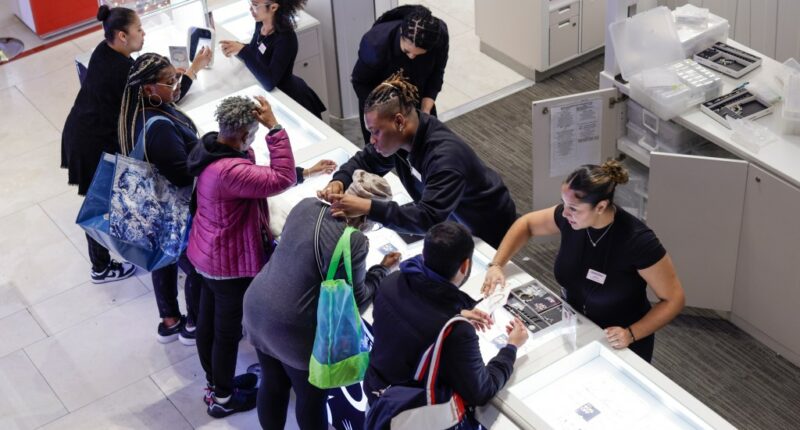Share this @internewscast.com

The holiday season is often associated with family, celebration, and joy. However, for the workforce that ensures these festivities go smoothly—cashiers, stockers, warehouse workers, delivery drivers, and food service employees—this time of year often brings exhaustion, stress, and, unfortunately, fear.
This year, the pressures facing these essential workers have intensified. With rising costs, fewer seasonal job opportunities, and heightened tensions, challenges are mounting. Incidents of retail theft and customer aggression are on the rise. Moreover, new technological advancements, including AI, are altering the workplace landscape. Instead of easing workloads, these technologies are being deployed to monitor, discipline, and exert more pressure on workers, stripping them of autonomy.
The focus frequently remains on rapid product movement and increasing profits, overshadowing the importance of the well-being of the workforce that facilitates it all. During the holidays, workers are expected to fulfill unrealistic demands while grappling with fluctuating hours, unpredictable schedules, and the necessity to cover shifts when there are staffing shortages. These workers deserve more than just polite acknowledgments; they need jobs that offer stability, safety, and the potential for a better future.
In stores across the country, frontline employees are facing increased harassment and even violence from frustrated customers. Many workers find themselves unfairly blamed for store policies or rising prices that are beyond their control. No one should have to fear for their safety while earning a living. Employers must ensure adequate staffing, provide de-escalation training, and implement effective security measures. Meanwhile, customers can contribute by practicing patience and showing respect, which cost nothing but mean everything to those serving them.
The pressure is even more severe in the vast fulfillment centers fueling online shopping. Companies like Amazon employ algorithms to track workers’ every move, measuring speed, pause durations, and task completion rates. Even brief breaks can result in warnings or disciplinary actions. Mandatory overtime and unattainable quotas push workers to their limits, leading to injuries and burnout.
This is not innovation; it is exploitation masked as efficiency. Humans are not machines, and no algorithm should dictate their value. When corporations prioritize speed and profit over safety and humanity, everyone suffers. Companies like Amazon and other major retailers must hire adequate staff to ensure safe working conditions, reduce the pace of work, and cease union-busting activities. Workers striving to improve their working conditions deserve respect, not retaliation.
And let’s not forget the workers who make the holidays happen long before the shopping begins, the farmworkers who harvest crops, the food processing workers who package goods, the warehouse and distribution workers who move it all to store shelves and ultimately our dinner tables. Many of them labor in extreme heat or cold, often without adequate protections or fair pay. Their work sustains our celebrations, yet their struggles remain largely invisible.
The truth is, the retail and food supply industries are changing faster than ever. AI now touches nearly every part of the system, from scheduling and staffing to loss prevention and performance monitoring. But technology should serve people, not exploit them. Progress can’t mean turning workers into data points or replacing human judgment with cold algorithms.
Protecting workers’ voices is more important than ever. When employees can organize and bargain collectively, they can help shape how technology is used, setting fair limits and ensuring that innovation improves jobs instead of undermining them. That’s why we need strong laws to protect workers from violence, regulate the use of AI in the workplace, and cap production quotas that jeopardize health and safety.
Policymakers must ensure that innovation and profit never outweigh fairness, dignity, and basic decency on the job. Empowering workers to have a say in these changes isn’t just good policy; it’s good for everyone.
But laws alone aren’t enough. Every employer, policymaker, and consumer has a role to play in ensuring that this truly is a season of goodwill starting with how we treat the people who make it all possible. The real spirit of the holidays isn’t measured in sales figures or delivery speeds. It’s reflected in how we value one another.
So, as you shop and celebrate this year, take a moment to thank the workers who make it possible and to demand a system that treats them with the dignity and respect they deserve every single day. Because goodwill shouldn’t end when the decorations come down.
Appelbaum is president of the Retail, Wholesale and Department Store Union (RWDSU).

















